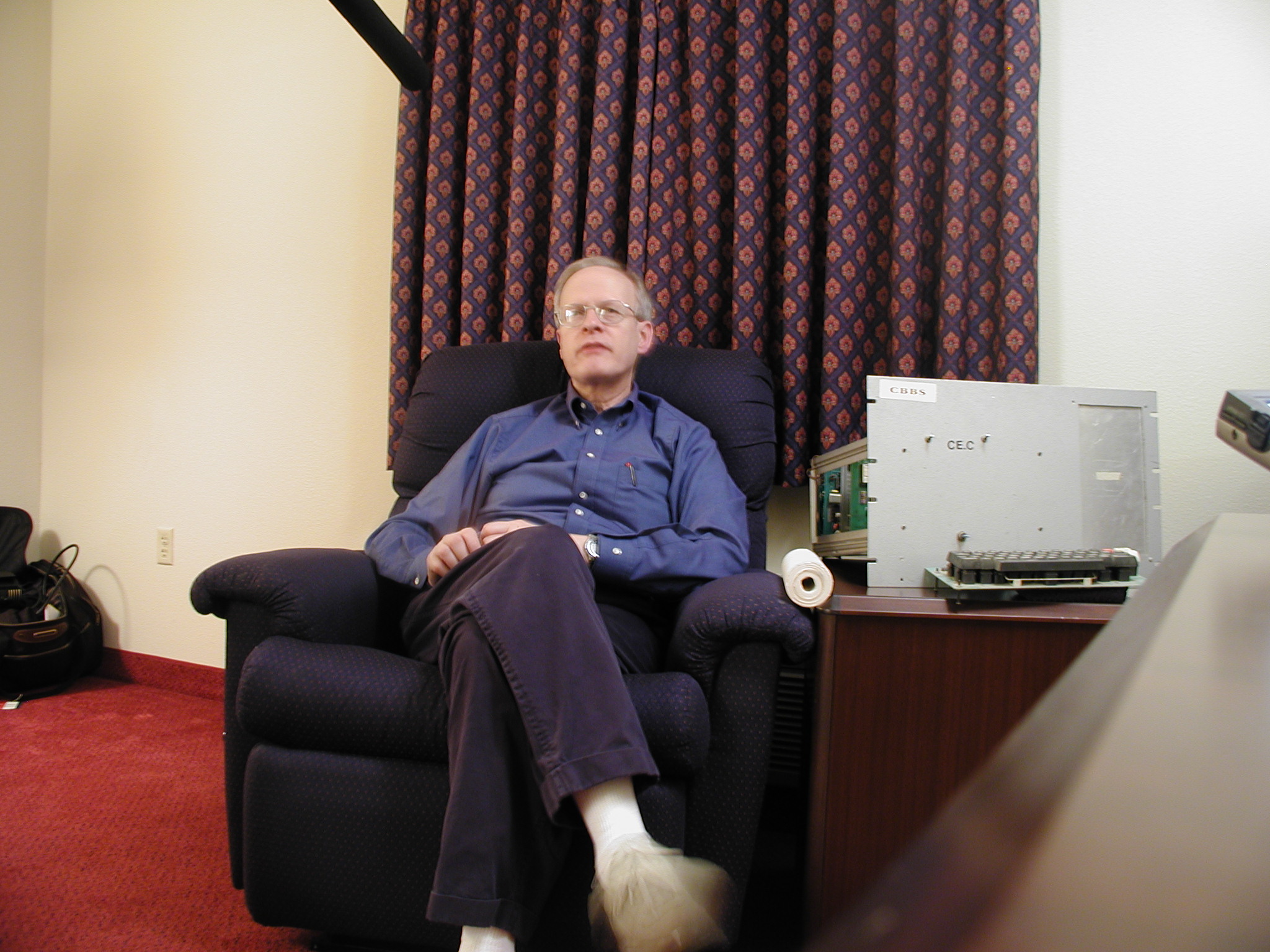Their new system allowed personal computer owners with modems to dial up a dedicated machine and leave messages that others would see later. The BBS concept represented a digital version of a push-pin bulletin board that might flank a grocery store entrance, town hall, or college dorm hallway.
Christensen and Suess openly shared the concept of the BBS, and others began writing their own BBS software. As these programs grew in complexity over time, the often hobbyist-run BBS systems that resulted allowed callers to transfer computer files and play games as well as leave messages.
BBSes introduced many home computer users to multiplayer online gaming, message boards, and online community building in an era before the Internet became widely available to people outside of science and academia. It also gave rise to the shareware gaming scene that led to companies like Epic Games today.
A low-key giant
Suess died in 2019, and with the passing of both BBS originators, we find ourselves at the symbolic end of an era, although many BBSes still run today. These are typically piped through the Internet instead of a dial-up telephone line.
While Christensen himself was always humble about his role in creating the first BBS, his contributions to the field did not go unrecognized. In 1992, Christensen received two Dvorak Awards, including a lifetime achievement award for “outstanding contributions to PC telecommunications.” The following year, the Electronic Frontier Foundation honored him with the Pioneer Award.
Professionally, Christensen enjoyed a long and successful career at IBM, where he worked from 1968 until his retirement in 2012. His final position at the company was as a field technical sales specialist.
A still image of Ward Christensen in 2002 being interviewed for BBS: The Documentary. Credit: Jason Scott
But mostly, Christensen kept a low profile. When visiting online communities in his later years, Ward presented no ostentation, and there was no bragging about having made much of it possible. This amazed Scott, who said, “I was always fascinated that Ward kept a Twitter account, just messing around.”
Scott feels like humility, openness, and the spirit of sharing are key legacies that Christensen has left behind.
“It would be like a person who was in a high school band saying, ‘Eh, never really got into touring, never really had the urge to record albums or become a rock star,'” Scott said. “And then later people come and go, ‘Oh, you made the first [whatever] in your high school band,’ but that sense of being at that locus of history and the fact that his immediate urge was to share all the code everywhere—that’s to me what I think people should remember about this guy.”
